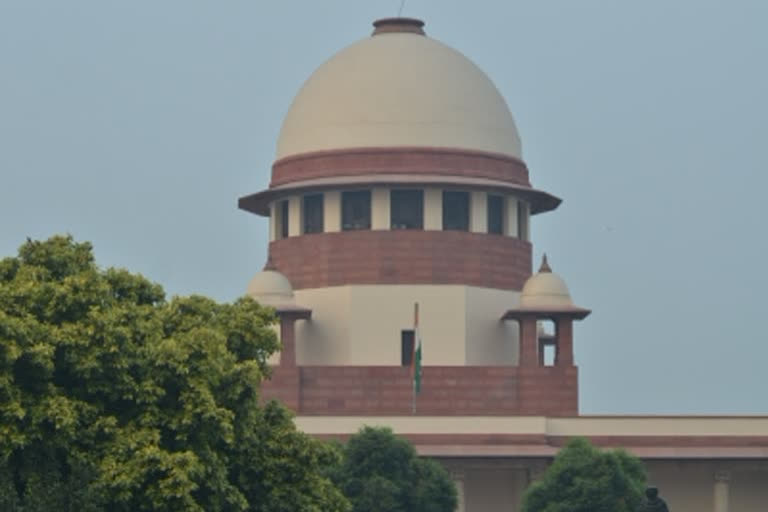New Delhi: The Supreme Court on Tuesday refused to interfere with a Kerala High Court's order which had declined the habeas corpus plea of 42-year-old spiritual guru to release his 21-year-old live-in partner from her parents' alleged illegal custody while highlighting the "suspicious credentials" of the man. A bench headed by the Chief Justice of India NV Ramana referred to a PIL that highlighted the issue of spiritual gurus, saying "there was a PIL where parents were concerned about such spiritual gurus." "You also know about the environment of some gurujis", said the bench also comprising Justices Hrishikesh Roy and AS Bopanna.
"This is not a matter where we can interfere. The girl is in a fragile state of mind. She is 21-year-old. She does not know what she is doing. The man (spiritual guru) is married with two children. The mother of the petitioner also says she does not trust his son. He is also involved in a POCSO case. How can we give this girl to this man?", asked the bench from senior advocate Gopal Shankaranarayanan who was representing the spiritual guru.
During the hearing, Shankaranarayanan argued that the High Court adopted a "paternalistic approach" by denying an adult woman right to take independent decisions for herself. The bench however highlighted the "suspicious credentials" of the petitioner. Shankaranarayanan told the bench that the petitioner was not seeking that the woman is allowed to join him, but was only seeking to set her free from the "illegal detention" of her parents.
Read: Court rejects plea to 'free' spiritual live-in partner
He said that it is a question of liberty of the woman. The counsel further submitted that the High Court judges erred in making an assessment of the mental capacity of the woman on the basis of their personal interaction with her, as the Mental Healthcare Act obligated them to refer the girl for medical examination. "No parent will say that a 21-year-old has a mental health issue. In India people cover up mental health issues", the apex court said. "This is a case where we are clear that the woman should not go with the petitioner. You want her to be let loose? It is better that she is with her parents. There is nothing illegal detention, she is with her parents," the bench stated. The bench then suggested that it can ask High Court to direct the district judge to once in a while calling for a report and check on the woman.
Refusing to release the woman from the custody of her parents, the bench proceeded to dispose of the appeal, however, directed the Registrar General of the High Court to ask the concerned District Judge to interact with the woman and her parents after a month and send a report on her condition to the Supreme Court. "Taking into account peculiar facts and circumstances, we are not inclined to interfere with the matter. To satisfy ourselves, we request the Registrar of the High Court to take steps to produce the girl before the District Judge concerned after one month and the District Judge is directed to examine her and after interacting with her and her parents, the District Judge must send a report on the condition of the girl to be examined by this court", the bench said in the order. The top court was hearing a habeas corpus petition seeking the release of a 21-year-old woman from the alleged illegal detention of her parents.
Read: SC refuses to entertain plea seeking action against ashrams of 'self-proclaimed spiritual gurus'
The petitioner, a doctor by profession, who had also filed a habeas corpus plea before the High Court approached the apex court against High Court's order stating that the 21-year-old woman, his live-in partner and Yoga Shishya, was forcefully taken from his custody by her parents on October 26, 2020, against her will. He said he renounced worldly life and separated from his wife and two daughters at the age of 42 and turned to spiritual practice on Vedantha Upanishad. The plea in the apex court said that the Kerala High Court order was passed despite the High Court recording the statement of the woman wherein "she had clearly stated that she was under illegal custody and said that she was subjected to physical violence and she had expressed her intention to go with the petitioner, who is her spiritual live-in partner and acharya."
(ANI)



